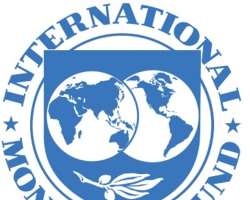Statement by IMF Managing Director Christine Lagarde at the Conclusion of her Visit to Morocco

RABAT, Morocco, May 10, 2014/African Press Organization (APO)/ -- Ms. Christine Lagarde, Managing Director of the International Monetary Fund (IMF), made the following statement today in Rabat:
“It is a great pleasure to return to Morocco, home of many cultures, and meet with its people. This is my first visit to Rabat and Casablanca, as Managing Director of the IMF.
I had the privilege to meet with his Majesty Mohamed VI, Head of Government Mr. Benkiran, Minister of Economic and Finance Mr. Boussaid, Governor of Bank Al-Maghrib Mr. Jouahri, and other senior officials. It was my honor to address the Conseil Economique Social et Environnemental where its President Mr. Baraka and his colleagues welcomed us with great warmth. I also had the pleasure of interacting with representatives of the private sector and different components of the Moroccan society, distinguished women leaders and students. I was inspired by their dynamism and their determination to contribute to the well-being of their economy and society.
“During these meetings, I congratulated the Moroccan authorities on the recent progress in improving economic conditions and advancing important reforms, despite an environment that remains challenging. In particular, I commended the authorities for the important steps taken recently to reduce economic unbalances, including the courageous subsidy reform and the extension of social programs to support the poorest. We also discussed the outlook for the global economy and its impact on countries in the region.
“Morocco's economic performance improved in 2013 despite headwinds. The euro area crisis led to an underlying slowdown in growth that was mostly offset by a bumper crop. The authorities' strong policy actions coupled with lower international oil prices, helped reduce the fiscal deficit by almost 2 percent of GDP to 5.4 percent. The current account also improved while reserves remained broadly stable. However, unemployment has remained high especially among the youth.
“We project growth will fall below 4 percent in 2014 as agriculture production returns closer to normal levels and non-agricultural activity picks up, drawn by the recovery in Europe. The current account deficit is expected to contract further as a result of continued policy action, lower global energy prices, and exports from newly developed sectors (e.g. car and aeronautics industries).
“Morocco has significant potential, but faces a number of challenges, to promote higher and more inclusive growth. I encouraged my counterparts to take further measures to push ahead with difficult fiscal reforms and implementing a structural reform agenda in support of competitiveness, a strengthened business environment and higher job creation. Continuous effort to build consensus on the most crucial reforms, such as subsidies or pensions, remains essential. The IMF is a partner in support of Morocco's effort through advice, financial and technical assistance as relevant. In my meetings, I was happy to congratulate the Moroccan authorities on the completion of the third review under the Precautionary and Liquidity Line (PLL) arrangement. The PLL has provided insurance against external risks while supporting the authorities' economic program.
“Finally, I would like to express my sincere thanks to the authorities and the Moroccan people for their wonderful hospitality. The IMF values highly its constructive and collaborative relationship with Morocco.”
